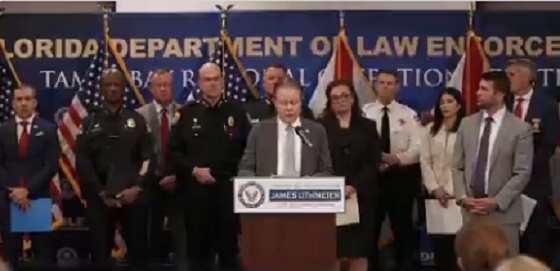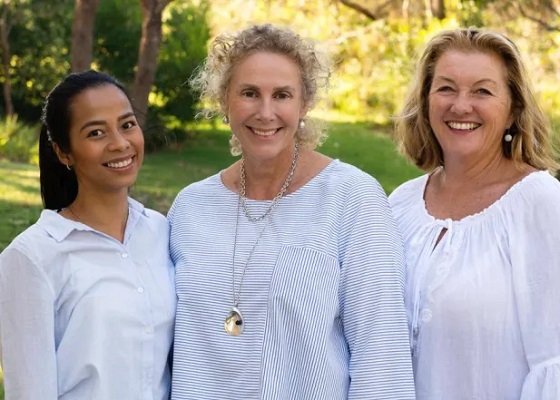2025 Federal Election
POLL: Canadians say industrial carbon tax makes life more expensive

The Canadian Taxpayers Federation released Leger polling showing 70 per cent of Canadians believe businesses pass on most or some of the cost of the industrial carbon tax to consumers. Meanwhile, just nine per cent believe businesses pay most of the cost.
“The poll shows Canadians understand that a carbon tax on business is a carbon tax on Canadians that makes life more expensive,” said Franco Terrazzano, CTF Federal Director. “Only nine per cent of Canadians believe Liberal Leader Mark Carney’s claim that businesses will pay most of the cost of his carbon tax.
“Canadians have a simple question for Carney: How much will your carbon tax cost?”
The federal government currently imposes an industrial carbon tax on oil and gas, steel and fertilizer businesses, among others.
Carney said he would “improve and tighten” the industrial carbon tax and extend the “framework to 2035.” Carney also said that by “changing the carbon tax … We are making the large companies pay for everybody.”
The Leger poll asked Canadians who they think ultimately pays the industrial carbon tax. Results of the poll show:
- 44 per cent say most of the cost is passed on to consumers
- 26 per cent say some of the cost is passed on to consumers
- 9 per cent say businesses pay most of the cost
- 21 per cent don’t know
Among those decided on the issue, 89 per cent of Canadians say businesses pass on most or some of the cost to consumers.
“Carbon taxes on refineries make gas more expensive, carbon taxes on utilities make home heating more expensive and carbon taxes on fertilizer plants increase costs for farmers and that makes groceries more expensive,” Terrazzano said. “A carbon tax on business will push our entrepreneurs to cut production in Canada and increase production south of the border and that means higher prices and fewer jobs for Canadians.”
2025 Federal Election
NDP’s collapse rightly cost them official party status

This article supplied by Troy Media.
 By Michael Taube
By Michael Taube
Official party status requires 12 seats. The NDP got seven. End of story
Rules are rules.
That, in a nutshell, is why the NDP wasn’t granted official party status in the House of Commons on Monday. Prime Minister Mark Carney and the
Liberals, to their credit, made the right decision.
Let’s examine why.
The 1963 Senate and House of Commons Act passed an amendment that gave an annual allowance to party leaders other than the prime minister and
leader of the Opposition. In doing so, the Canadian government had to establish what constitutes a “political party.” The definition they came up with was a sensible one: it had to have a “recognized membership of 12 or more persons in the House of Commons.”
This important amendment is still used today.
The NDP fell from 24 to a paltry seven seats in last month’s federal election. (There are a total of 343 seats in the House of Commons.) They finished with 1,234,673 votes, or 6.29 per cent, which was behind the Liberals, Conservatives and Bloc Québécois. Party leader Jagmeet Singh, who had represented the former Burnaby South riding since 2019, finished a distant third in the newly created Burnaby Central riding and resigned.
The NDP’s seven seats is well below the 12-seat requirement needed for official party status. This means Canada’s socialist alternative won’t be able to ask questions in the House of Commons and will lose out on money for research purposes.
Or, to put it another way, they’re plumb out of luck.
Hold on, some people said. They pointed out that the NDP’s seat count and popular vote only plummeted because many progressive voters backed Carney and the Liberals as the best option to counter U.S. President Donald Trump and his tariffs. They felt that the NDP’s long history as a champion for unions and the working class should count for something. They suggested there should be an exception to the rule.
Guess what? They’re wrong.
This is the worst election result in the party’s history. Even its predecessor, the Co-operative Commonwealth Federation (CCF), did marginally better in its first campaign. The CCF won seven out of 245 seats—and earned 410,125 votes, or 9.31 per cent—in the 1935 election. Party leader J.S. Woodsworth, who had represented the riding of Winnipeg North Centre as an Independent Labour MP since 1925, comfortably held his seat.
Meanwhile, this won’t be the first time they’ve ever lost official party status.
The NDP dropped from 43 to nine seats in the 1993 election. It was a dismal showing, to say the least. There was a suggestion at the time that then-party leader Audrey McLaughlin, the first woman to lead a party with political representation in Canada’s House of Commons, deserved a better fate. While the NDP certainly came closer to achieving the 12-seat requirement in this particular election, Prime Minister Jean Chrétien and the Liberals decided against granting them official party status.
Why? As I mentioned earlier, rules are rules.
Then again, British pilot Harry Day notably told his fellow flying ace Douglas Bader in 1931, “You know my views about some regulations—they’re written for the obedience of fools and the guidance of wise men.”
Does this mean that individuals and organizations who follow rules are, in fact, fools? Not at all. While certain rules in a liberal democratic society can range from slightly questionable to utterly ridiculous, they’re usually put in place for a specific purpose.
In the case of the House of Commons, it’s to ensure that a bar has been set with respect to political representation. Is 12 seats the right number? That’s difficult to say. It certainly prevents small protest parties and one-issue parties that unexpectedly win a tiny number of seats in an election from acquiring power and status right off the bat. They need to win more seats and grow in size and stature to reach a point of respectability. Most of them never reach this point and disappear while others float in a constant state of mediocrity like the Green Party of Canada. ’Tis the nature of the political beast.
One final point. If Singh and the NDP had reached double digits in total number of seats in 2025, a solid case could have been made in favour of official party status. If they had finished with 11 seats, it would have almost been a lock. Neither scenario ultimately materialized, which is why Carney and the Liberals did exactly what they did.
Michael Taube is a political commentator, Troy Media syndicated columnist and former speechwriter for Prime Minister Stephen Harper. He holds a master’s degree in comparative politics from the London School of Economics, lending academic rigour to his political insights.
Troy Media empowers Canadian community news outlets by providing independent, insightful analysis and commentary. Our mission is to support local media in helping Canadians stay informed and engaged by delivering reliable content that strengthens community connections and deepens understanding across the country.
2025 Federal Election
Judicial recounts give Conservatives 2 more seats, keeping Liberals short of majority

From LifeSiteNews
After a judicial recount, Conservative candidate Kathy Borrelli has officially won over Liberal incumbent Irek Kusmierczyk, in the Ontario riding of Windsor-Tecumseh-Lakeshore.
Judicial recounts from the 2025 federal election have given the Conservative Party two new seats, with one candidate winning by just four votes.
After a judicial recount, Conservative candidate Kathy Borrelli has officially won over Liberal incumbent Irek Kusmierczyk, in the Ontario riding of Windsor-Tecumseh-Lakeshore.
Borrelli got 32,090 votes, with Kusmierczyk getting 32,086 votes, and NDP candidate Alex Ilijoski getting 4,240 votes.
In the Newfoundland riding of Terra Nova-The Peninsulas, Conservative candidate Jonathan Rowe beat out Liberal Anthony Germain by just 12 votes after a recount with the initial result showing a Liberal victory.
The new election results mean the Conservatives now have 144 seats with the Liberals at 169, three short of a majority.
Judicial recounts are automatically triggered when the margin of victory for a candidate is less than 0.1 percent of valid votes.
While these recounts have favored the Conservatives, others have gone in the Liberal Party’s favor.
A May 16 judicial recount switched the southern Ontario riding of Milton East-Halton Hills South to the Liberals with a 21-vote victory over the Conservatives.
Overall, the election results have been a big blow to the Conservative Party, which on top of losing the election also saw its leader, Pierre Poilievre, fail to win his long-held seat. However, Poilievre is expected to run in a yet-to-be-announced by-election in Alberta to reclaim a seat in Parliament.
-

 Bruce Dowbiggin17 hours ago
Bruce Dowbiggin17 hours agoWhat Connor Should Say To Oilers: It’s Not You. It’s Me.
-

 Business18 hours ago
Business18 hours agoFederal fiscal anchor gives appearance of prudence, fails to back it up
-

 Business16 hours ago
Business16 hours agoThe Passage of Bill C-5 Leaves the Conventional Energy Sector With as Many Questions as Answers
-

 Alberta14 hours ago
Alberta14 hours agoAlberta poll shows strong resistance to pornographic material in school libraries
-

 Business12 hours ago
Business12 hours agoCanada should already be an economic superpower. Why is Canada not doing better?
-

 Crime13 hours ago
Crime13 hours agoFlorida rescues 60 missing kids in nation’s largest-ever operation
-

 Banks15 hours ago
Banks15 hours agoScrapping net-zero commitments step in right direction for Canadian Pension Plan
-

 Business2 days ago
Business2 days agoBehind the latest CPI Numbers: Inflation Slows, But Living Costs Don’t




